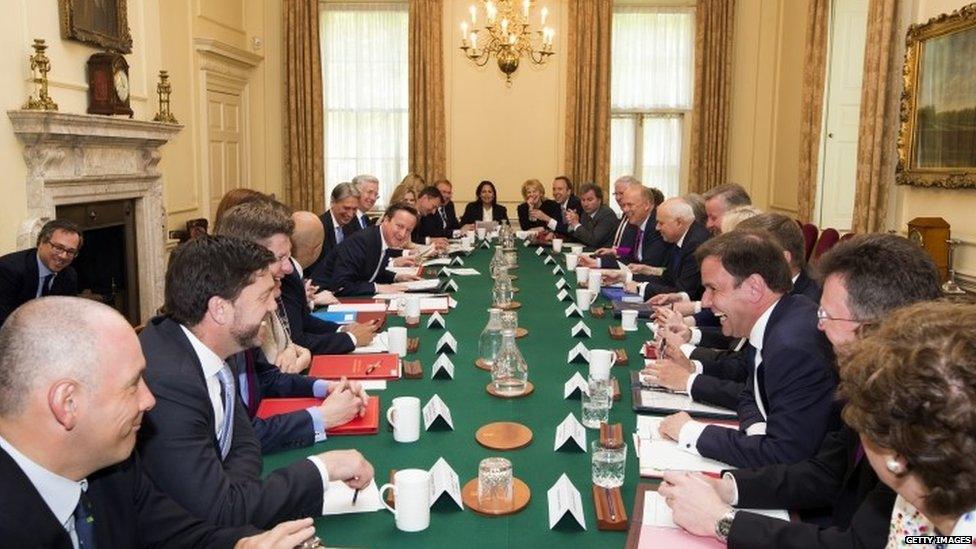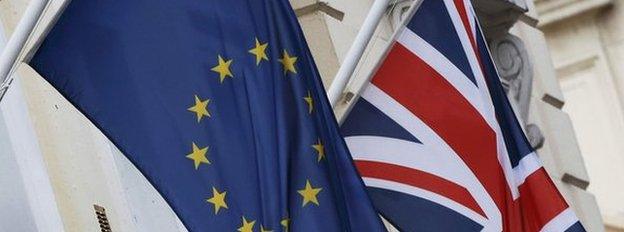Cameron urged to call cabinet immediately after EU deal
- Published

David Cameron is being urged to hold an emergency cabinet meeting as soon as the crucial summit on the UK's EU renegotiations concludes next month.
And the House of Commons could even be recalled over the weekend to debate the likely deal and a future referendum.
Some cabinet ministers fear if a deal is done on Friday 19 February, they will not meet until the Tuesday to decide the government's position.
That would give those fighting to stay in the EU a head start in campaigning.
One cabinet minister told the BBC it is "inconceivable" that the prime minister would be able to make the case for his deal before meeting senior colleagues, some of whom are likely to campaign for to leave the EU in a referendum that could be held as early as June.
PM urged to meet cabinet after EU deal
UK and the EU: Better off out or in?
The UK's EU referendum: Everything you need to know
What Britain wants from Europe
Another senior Conservative said that it would be "right and proper" for the cabinet to meet on the Friday.
'Making the case'
A No 10 source said the focus was on reaching a deal, rather than what happens afterwards. But the concerns over choreography are real, a symbol of how much is at stake.
David Cameron's negotiations with the EU's 27 other leaders are focused on four key areas: economic governance, sovereignty, competitiveness and curbs on EU migration to the UK.
Both sides are insisting progress is being made but that obstacles remain, particularly in relation to the UK's proposal for EU migrants to have to wait four years before being able to claim in-work benefits.
Donald Tusk, the President of the European Council, said earlier this week that he would table "concrete proposals" for discussion at February's summit and that an agreement was possible.
Speaking at the World Economic Forum on Thursday, David Cameron will urge business "to make its voice heard" in the debate and to speak out in favour of the changes that he argues are necessary to keep the UK in a reformed EU.

David Cameron's four main aims for renegotiation

Economic governance: Securing an explicit recognition that the euro is not the only currency of the European Union, to ensure countries outside the eurozone are not disadvantaged. The UK wants safeguards that it will not have to contribute to eurozone bailouts
Competitiveness: Setting a target for the reduction of the "burden" of excessive regulation and extending the single market
Immigration: Restricting access to in-work and out-of-work benefits to EU migrants. Specifically, ministers want to stop those coming to the UK from claiming certain benefits until they have been resident for four years
Sovereignty: Allowing Britain to opt out from further political integration. Giving greater powers to national parliaments to block EU legislation
Referendum timeline: What will happen when?
Guide: All you need to know about the referendum
Q&A: What does Britain want from Europe?
Analysis: Cameron tries to avert slanging match